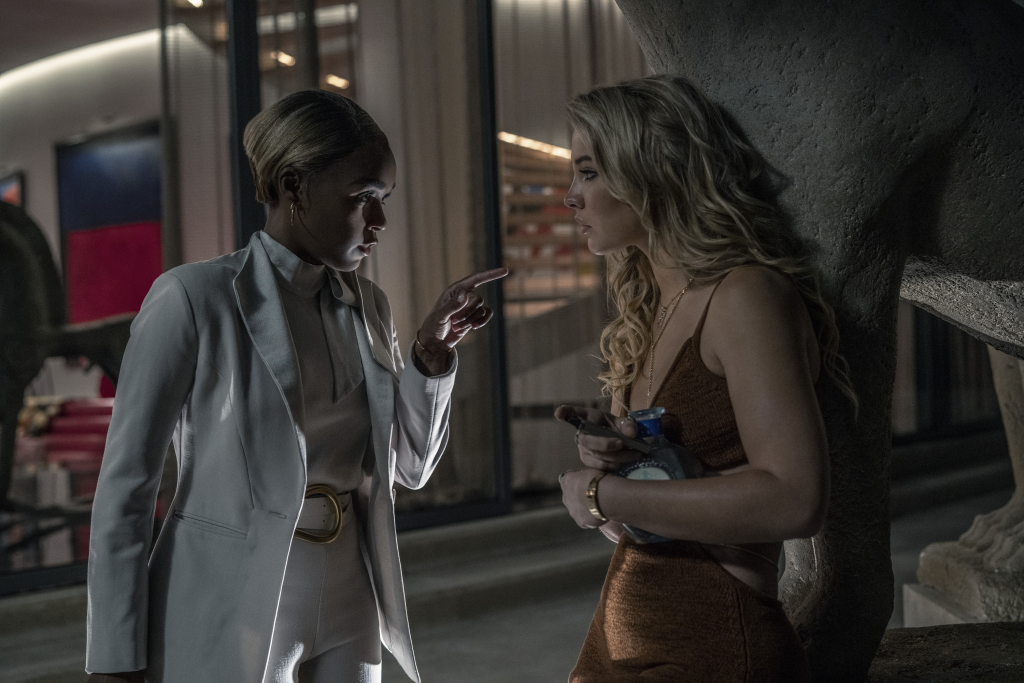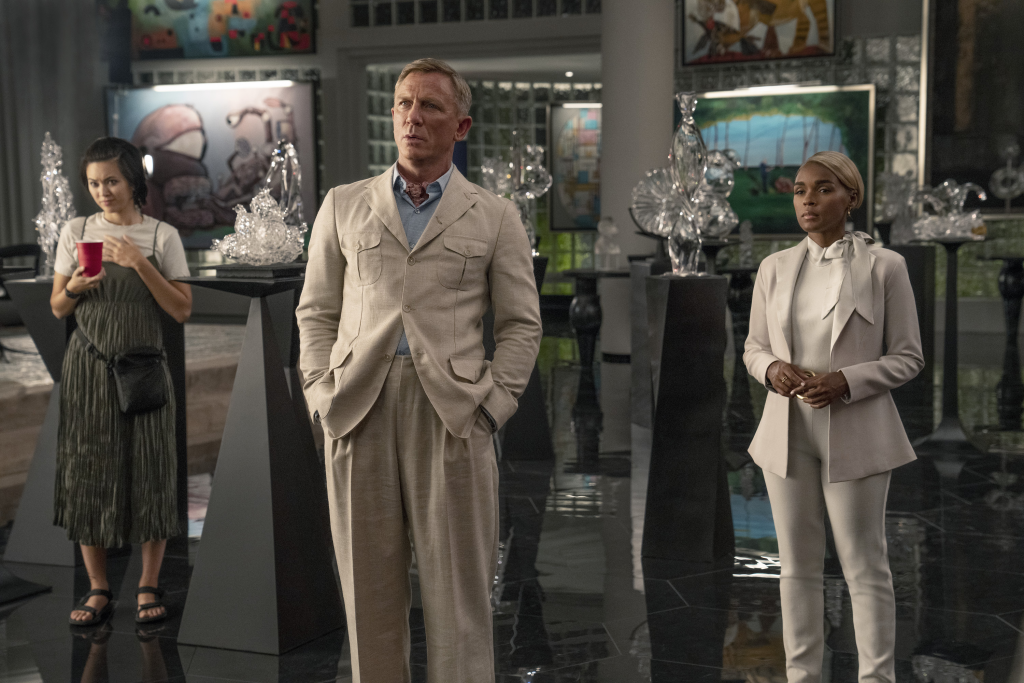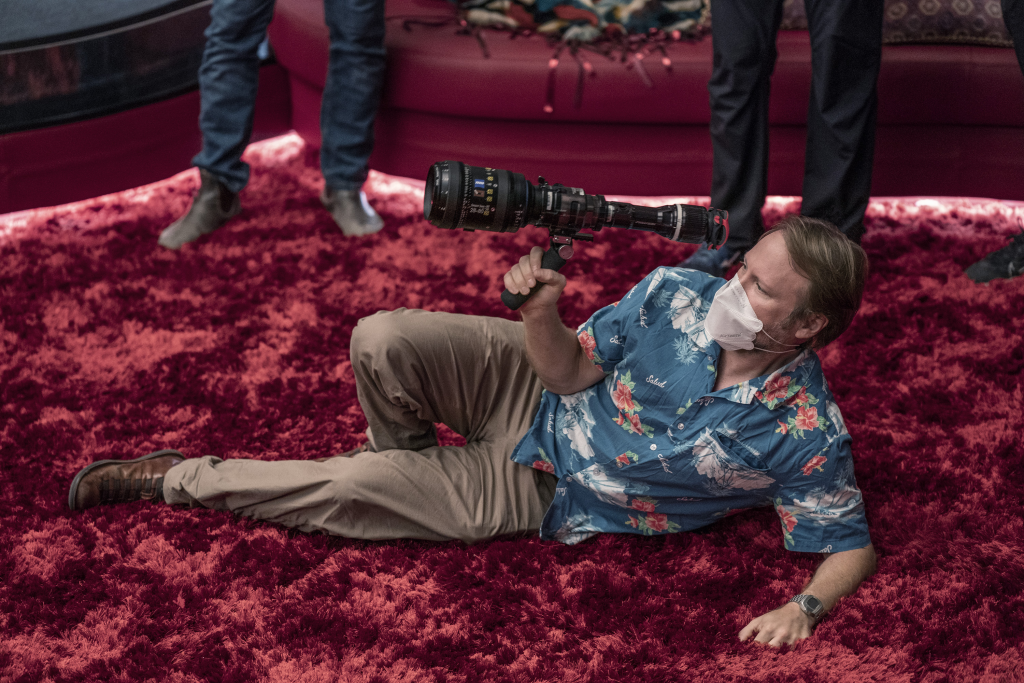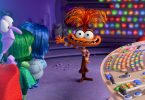Shakefire sat down with director Rian Johnson and actor Janelle Monáe to discuss their latest film, Glass Onion: A Knives Out Mystery. A sequel to 2019’s Knives Out, Glass Onion once again features Daniel Craig’s master dectective Benoit Blanc investigating a mysterious murder where everyone is a suspect. Featuring an ensemble cast that includes Janelle Monáe, Edward Norton, Kathryn Hahn, Leslie Odom Jr., Jessica Henwick, Madelyn Cline, Kate Hudson, and Dave Bautista, the film is as funny as it is thrilling. We chatted with the director and actor about bringing this murder mystery to life.
Congratulations Janelle, you won best supporting actress with Atlanta Film Critics Circle and the film won best ensemble as well.
Janelle Monáe: Thank you. It’s such a beautiful, beautiful time and I’m just so thankful to be a part of this film. This guy right here.
Well I will jump into it. From writing these characters and and from reading it to playing them on screen, what surprised you most about the transition from page to on camera?
Rian Johnson: To talk about Janelle’s performance, specifically, I feel like, I don’t know, you write these things and you have a version in your head, but then, I’ve spent like a year writing it and I know that movie, what I’m looking for is to find collaborators who are gonna come in and surprise me with their choices and I guess on paper, it’s one thing but the complexity of what Janelle was actually tasked with and this movie and the amount of depth she put into, I guess I’ll avoid spoilers, differentiating the different layers of this character. I didn’t even really appreciate it until I got into the cutting room and saw the whole thing strung together together. And that’s something I could not anticipate. You can have it on the page but when you see a great actor like Janelle actually bring to life those little subtle differentiations and see that they’re all built into it and baked in, I don’t know, it was kinda magic.
JM: For me, it starts with the script and I think what Ryan wrote was just remarkable and so appetizing for me to sink my teeth into. Just delicious; a big delicious bite from start to finish. And especially with the character. When I read what Ryan was considering me for, I just knew we were gonna have fun. We’re gonna play. We’re gonna go on a ride as the character because there’s so much there and I love everything on the page. Rian Is just the ultimate collaborator, a good partner to come in and say, “Ooh, what about this? What about this accent? What about if we drop some little Easter eggs here so when folks watch it a second or third time, watch it back, there’s some little clues that that speak to those different energies.” And I will say this, this role challenged me in the best possible way as an actor. I feel like I’ve grown more as an actor. I’ve grown more as just really a human, honestly. Once you do something like this, with the people that you just genuinely love, because this cast, I don’t know if you guys can feel it, but we had a wonderful time, just like connecting. All of that showed up on screen and he set the tone for that, creating that family-like vibe. So you go thinking, “All right, I’m gonna do this, do that,” and then you just get transformed in a completely different way and you leave room also for surprise. There were lots of moments where we talked and through our talking through things that it may not necessarily have have been something that when you read it you saw it but we do it and you’re like, “Yes that’s it!” So I always leave that element of surprise.

So Knives Out in my opinion brought back a lot of joy to the whodunit genre. How do you see Glass Onion and Knives Out as a franchise growing, and what do you think draws people in to that genre of film?
RJ: Well growing up I kind of loving whodunits from an early age, starting with Agatha Christie. I loved her books growing up. I loved the movies that were made of her books growing up; Death on the Nile, Evil Under the Sun, the Peter Ustinov Poirot movies that was kind of my jam when I was a kid. First and foremost, it’s just an incredibly fun genre, there’s nothing not fun about it. And the fact that it lets you have an ensemble, the fact that it has a mystery to it, you can have comedy; it’s just kind of the most fun a movie can be. For me, for this series there’s a couple big ingredients, though. The first one is kind of ignoring the notion of timelessness and setting. It’s just unapologetically right here and right now, and using this form that we’ve mostly seen as period pieces to engage with the present moment in kind of the candy coated show, this fun mystery, that to me seemed like a really exciting prospect. and going forward. I mean, the big thing that I want with these is for them to reflect Agatha Christie’s books, where it’s a whole new deal every single time. Daniel and I both feel like the instant we feel like we’re just kind of turning the crank on another one we’ll stop. I want to be thrilled excited and kind of scared the prospect of each new one of these. I’m starting to think of ideas for the third one now, and it’s like how can it be completely different than this one?
I’m curious to know about the whole sets. These sets in the film are absolutely gorgeous, and most of them involve a lot of glass, a lot of reflections. So working around that, both as an actor and as a director, and filming that process. What was that like for you?
RJ: Well Rick Heinrichs, who’s our production designer, who I had worked with on The Last Jedi, and Rick, he’s incredible. He came up with Tim Burton, so he’s done a lot of Tim Burton’s films. Rick is amazing at doing very beautiful, very character-based design but on a grand scale, which is kind of what we needed again inside Miles Bron’s head. So all those beautiful sets, which are built on sound stages in Belgrade actually, where we were for the second half of the shoot, those are all from the mind of of Rick. I have to say that that massive set that we were on…the big one because it does reflect Mile’s brand, it’s also kind of an eyesore and we were on that set a while. I think you were great to start smashing it up at the end.
JM: Oh yeah, we did.
I’m sure that was a lot of fun.
JM: It was cathartic. So fun. I think speaking of what Rian is saying, just about how this genre within itself, bringing the elements of the people, the star-studded cast on this private island in Greece and you’re at a murder mystery. That within itself; it’s just like fun and getting a chance to smash things and do action and do the comedy and do the drama was just a very transformative experience as I mentioned before. But being with the cast too, I was so excited about working with Daniel, working with Edward, Kate, Catherine, everybody. Like I grew up watching their work, right? And so there was a part of me that was a little nervous, but there was also a part of me that was eager to learn as well from them and their processes. And when I met them, they were so just down to earth, humble, scared too. A lot of us didn’t have a whole lot of work during that time during the pandemic, so it was the first thing we were returning back to. And so we just all wanted to do right by this script and this material since we loved it so much. Then Rick, I love Tim Burton too and to know that somebody like that legendary was coming and creating some of those sets is just…it reminds you of what you love acting, why you’ve got into movie making.

So we get a sort of glimpse of the wonderful cameo of Blanc’s boyfriend, Philip and it’s a very brief moment and they’re never on screen together. It sort of skirts that LGBTQ representation a little bit. I was curious as to whether that was a call driven by COVID and whether they were actually ever in the same place and also whether we might be seeing more of Philip in the future, whether he’ll ever be coming along in a case or being his own little Mrs. Colombo.
RJ: It wasn’t meant to skirt anything, but it also wasn’t driven by COVID particularly. It was just kinda the way the scene was written. And also the kind of the delight of connecting up that moment when you come back to it, halfway through, with the moment at the beginning was kind of the idea of it. So I mean I felt like Blanc be gay and have a partner just kind of felt like a very natural thing coming off the first movie. But I think it’s also an interesting thing because – I should only be so lucky to have that actor in future installments in a murder mystery. It’s also a delicate thing because it’s tough because the detective is always at the center of a good murder mystery. The detective is never the protagonist of a good murder mystery and I feel like just in general if you think about Poirot, for example, I feel like getting glimpses of the detective’s life outside of the scope of the case is interesting, but I don’t know that I can ever see the movies being more about that. It’s not like The Thin Man where it’s kind of all about the mystery itself. But the same time it’s a big part of who he is and going forward It’s gonna be fun to learn more about Blanc. It’s true. It is just a glimpse of it, and that was one thing that I thought. We’re obviously gonna want to see more of this, you know?
JM: I like just how normal it felt.
RJ: Well, that was that was the other thing.
JM: Being a part of the community myself and always wanting to obviously see representation, I loved how it just wasn’t like a message. And as it should be. It should feel normal, it should feel easy, it should feel like these are people who are very familiar and just comfortable with each other.
Does the glass onion represent reflections of mirrors that an individual puts around himself so that he can see him or herself a certain way? Is it representative of what we build around ourselves, so that we can see ourselves a certain way, not tricking ourselves, but just see ourselves a certain way for other people to see us?
RJ: I love that. I was gonna say, that’s better than the way I could put it. So much of Miles is building…all these characters are so focused on what they project as themselves. All of them are performers in some way. And your character is kind of forced to perform, doesn’t think of herself as a performer, and is forced to step into that spotlight and put on the false front and turns out to be quite good at it. I like that, though. I like that a lot.

I’m just gonna ask when you write in general but especially this, do you feel like you have to go to a darker place, like a different place? What’s the process for that? How do you get to that?
RJ: The whole process of writing it is for me, I do a lot of outlining. I have to figure out the shape of the entire story before I actually start typing. I feel like with the last one and with this one with the stuff that’s engaging with there is an element of it that definitely comes from stuff that I’m angry about. I think that’s the element kind of, you know this one probably even a little more than the last one, is kind of wanting to kinda shout back a little bit at this kind of lurid, carnival of insanity over the past whatever six years that we’ve all kind of been living through and in the stupidity of it I guess. And so yeah, for me, any movie I got to make at some level it’s got to be driven by something. It’s got to have some fire underneath it. Even if it’s a fun kind of souffle, the reality is, there’s got to be something that it’s about for me and that’s usually driven by something I’m pissed off about.
I think that it was interesting how your character was in the tech field. And I think that’s really important to showcase more of women being representative of STEM especially since with coding, a lot more women are in that now. So what do you think about the future of STEM like incorporating more women?
JM: Well again, I have to just say thank you to writers like Rian who are writing these sorts of roles and having that representation, and it goes beyond race because there’s women of color, black woman and specifically white women who have all been in these rooms with these sorts of tech bros and have had to assert themselves because they’re not heard, they’re not listened to, their ideas are taken, they’re not taking seriously, they’re not given even the funding that these tech bros have been given. That’s why I was excited about playing Andi, because I know so many women who represent her and who are these sorts of people who really want to do good with their money, with their wealth, with their influence, and have to take a stands and stand up to the Miles Brons of the world and also to even friends. Everyone in this film, they all have a complicated relationship with each other and so when you watch it, you’ll notice that Andi represents something important to these people.
Glass Onion: A Knives Out Mystery releases on Netflix on December 23, 2022.







